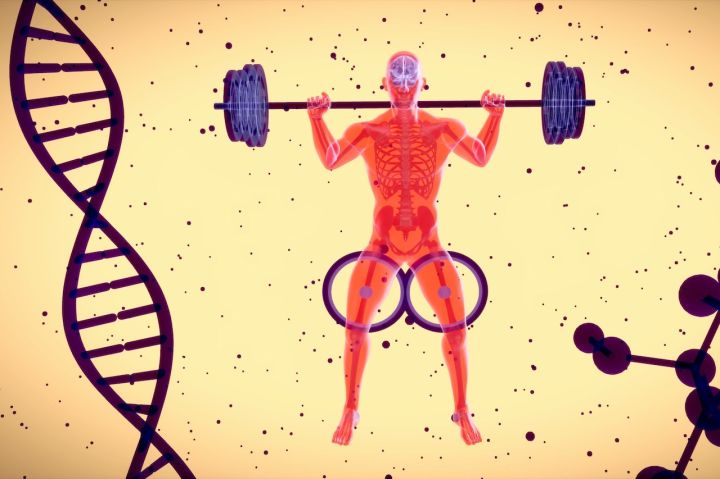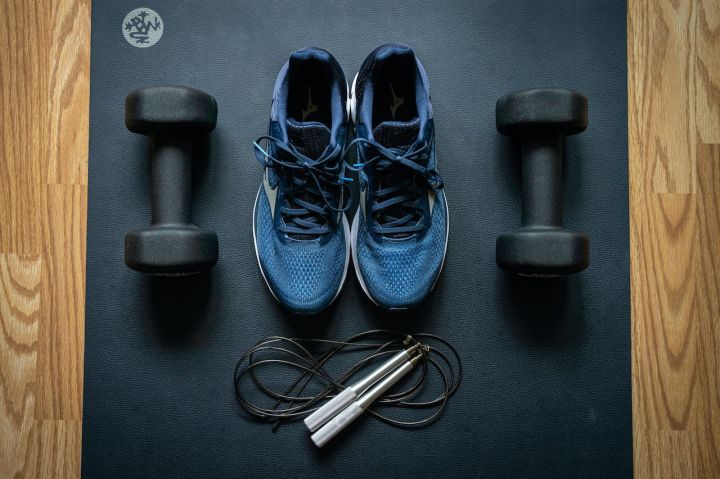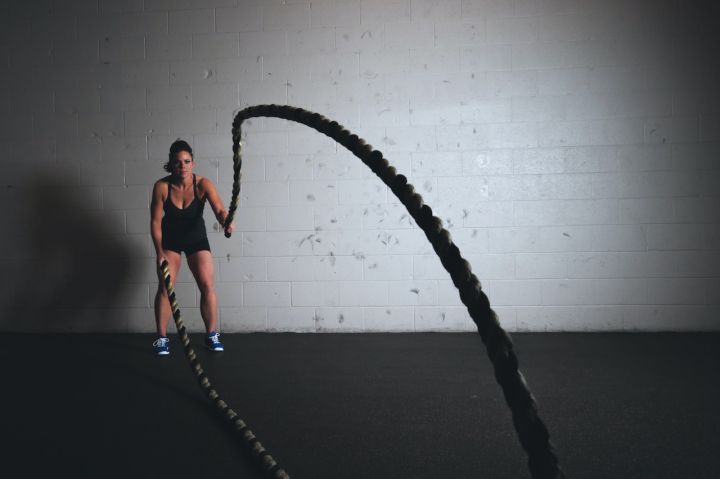Many athletes prefer to choose a low-carb diet. More specifically, it's bodybuilders who want to increase their size while not wanting to gain fat. To many, more protein, a little fat and vegetables are the most important nutrients. So why would we say that carbohydrates are important for building muscle?

Low-carb diets remain popular among people who are losing fat and seeking muscle definition. This is because it's a great way to burn fat and help you lose weight more quickly. But what about for muscle?
The truth is that there are two sides to many approaches. A low-carb approach can help you lose weight to a certain extent, but it's not for building muscle.
Why are carbohydrates important for building muscle?

Carbohydrates bring more than just energy and fat gain.
There is more hidden behind these sugary substances than what we see. Let's take a look at why carbohydrates are important for building muscle.
Carbohydrates provide you with the energy you need to train
Carbohydrates deserve a lot more credit than we give them. Firstly, they are our body's preferred source of energy. Even with fat and protein, carbohydrates are our first choice of energy source.
Low-carb diets are not designed to provide energy for athletes, especially those who do intense training, such as muscle building or strength training.
This is why performing a workout with a severe sugar deficiency can leave you feeling exhausted. However, by replenishing your muscles with glycogen, you'll have plenty of energy.
So, by providing you with the energy you need to train, carbohydrates can help you build muscle. They help you are train better to force a greater amount of muscle damage. The more muscle tears you have, the more room there is for growth (provided proper recovery).
Carbohydrate and protein synthesis

Protein synthesis is the process by which biological cells produce new proteins. This is usually balanced by protein degradation when the body breaks down protein cells.
For the sake of simplicity, think of this as new protein structures being formed. These can be used to rebuild and support damaged muscles. If protein synthesis does not occur, your torn muscle fibres cannot be repaired and this will result in a loss of lean body mass (muscle).
Many nutritionists agree that protein intake after exercise can promote protein synthesis. Eating a protein-rich meal within 30 minutes to 2 hours after training seems to work best.
The 30 minute anabolic window is not very significant.
Here's where carbohydrates come in
However, there is also research that suggests that carbohydrates can actually promote protein synthesis. This is just one of the reasons for including fast carbohydrates in a post-workout nutrition plan.
Apparently, it has to do with the body releasing insulin when it detects carbohydrates. This process helps amino acids enter the muscles and speeds up protein regeneration.
As far as carbohydrates are concerned, the earlier you consume them the better. So, if you can stand it, try having some carbohydrate-based top-ups after training.
Carbohydrates retain protein

Another important property of carbohydrates is that they retain protein. As well as tasting good, they may even help protect your body shape.
Remember when we said that carbohydrates are your body's first choice for energy? When you eat them, one or two things happen. If you're preparing to exercise, then the sugar in your bloodstream is used to provide energy for exercise.
Not training? They are stored in your muscles and liver as glycogen. When you decide to exercise, say within an hour or two, your body converts the glycogen into glucose to provide energy.
What about when you don't have carbohydrates and you don't have these sugars for energy? Unless you have fat that you can burn straight away, like in ketosis, you may be burning your muscles.
If you want to stay in better shape (the muscle on your body), not having carbs for energy is bad news. You'll literally be breaking down your existing muscle for energy, rather than adding any extra muscle.
If you have plenty of protein in your diet, this may also be used for energy. But it doesn't end up in your muscles, it's all consumed.
Other than that, what other methods do you use to keep your strength training going?
It's not just a question of when you train. When glycogen and fat energy reserves are low, you are at the same risk after training.
After a hard training period, your body needs all the energy it can get to recover, and if you don't have it, that energy may come from the muscles you worked so hard to gain. This is especially true if you train at night before bed and on an empty stomach.
Recovering! Eat some carbohydrates

We've already talked about the immediate importance of carbohydrates for building muscle. They can help boost protein synthesis, which means your muscle fibres can grow bigger, better and stronger.
But they should not be neglected in recovery either.
Carbohydrates can prevent colds and another advantage of carbohydrates for recovery is that they boost the immune system.
We all know that a period of time after strenuous exercise can make you more susceptible to illness, right? Simply put, high-intensity training suppresses the immune system, especially during the recovery period.
It's only a matter of time before you get a cold with continued high intensity training.
But now there's a study showing that carbohydrates can keep us away from illness and keep our immunity in check for a longer period of time. Apparently, this is because carbohydrates can actually reduce the immunosuppressive effects caused by exercise.
Now, if you want to build muscle, you need to train consistently over a long period of time. So, to ensure that you stay away from disease for a long time, carbohydrates in this regard also sort of indirectly help you build muscle.
Carbohydrate intake is linked to good sleep

A good night's sleep equals stronger muscles. Not everyone thinks that sleep is a necessary component of a strong body, but it's true.
Sleep is when your anabolic capacity is at its strongest. During your time of complete rest, your muscle repair and growth is at its peak. This is also the time when hormones are at their highest.
Healthy sleep also affects testosterone levels. If you know a little about androgen, you will know that it is linked to muscle growth.
Even if you are a healthy young man, poor sleep can lower serum testosterone levels. Over time, chronic sleep deprivation will seriously affect your ability to grow muscle.
The role of carbohydrates in this?
Firstly, they can help you fall asleep more quickly. This means that once you're in bed, you'll be able to get into an optimal state of rest more quickly. It's recommended that you get 7 - 8 hours of sleep a night, and falling asleep quickly will allow you to reach your maximum anabolic rate more quickly.
Secondly, carbohydrates can even improve the quality of your sleep. Studies have shown that a high-carb diet in men is associated with improved sleep, and that sleep makes you feel more refreshed.
So, optimised sleep helps with muscle growth and testosterone, and you'll have more energy too. Who says you can't have a 7am workout tomorrow morning?
When should you eat carbohydrates to build muscle?

Firstly a guaranteed carbohydrate intake throughout the day is the foundation. For recovery, some quick carbs can be added an hour or two after training.
Foods like refined rice are not only tasty, but also have a higher glycemic index. You will metabolise them faster and be able to replenish your glycogen stores more quickly. The energy input will also fuel your body and make it stronger.
Also, if you like to have a big meal before exercise, consider complex carbohydrates. Eating brown rice, sweet potatoes or oatmeal two hours before training can be a slow release.
You can experience a period of smooth, sustainable energy output, rather than an energy spike. This is why oatmeal is a great breakfast for building muscle. It fills you with energy and replenishes your fuel in dribs and drabs.
Don't gorge on sweet potato before training, though, as you're still digesting it. Leave two hours between your workout and your big meal.
But what if you want a quick energy boost?
Increase your blood sugar by eating some high litre food for an extra meal. Sports drinks and energy bars are easy options.
Fruits such as pineapple also have a quick sugar boost, but are best consumed 30 minutes before a workout. The best pre-workout fruits include pineapple, bananas and apples.
Try to find your favourite pre-workout food (with sugar). This is entirely down to personal preference.
Just remember that simple sugars digest quickly, while complex carbohydrates digest slowly. Schedule your time and you're ready to go.
When it comes to building muscle, we cannot underestimate the importance of carbohydrates to keep us strong.
Carbohydrates are a natural way of providing energy for our muscles. More specifically, glucose is later converted into glycogen. While it is true that we can eat a ketogenic diet and burn fat as fuel, nothing provides more energy than carbohydrates.

By filling your muscles with glycogen, you can increase your training volume. You can also accelerate muscle growth after training. So, you have the banana or breakfast oats to thank for your pre-workout.
Not only that, but carbohydrates have also been shown to help indirectly. Firstly, they can positively influence protein synthesis, which is the process of generating new muscles.
In addition, studies have shown that eating a crunchy slice of wholemeal toast before bed may make you sleep better. Even when you're away from the gym, carbohydrates are still helping you all the time.
So, what are you waiting for? Let's ditch your fear of eating carbs and use them scientifically. Let's get you in better shape.





